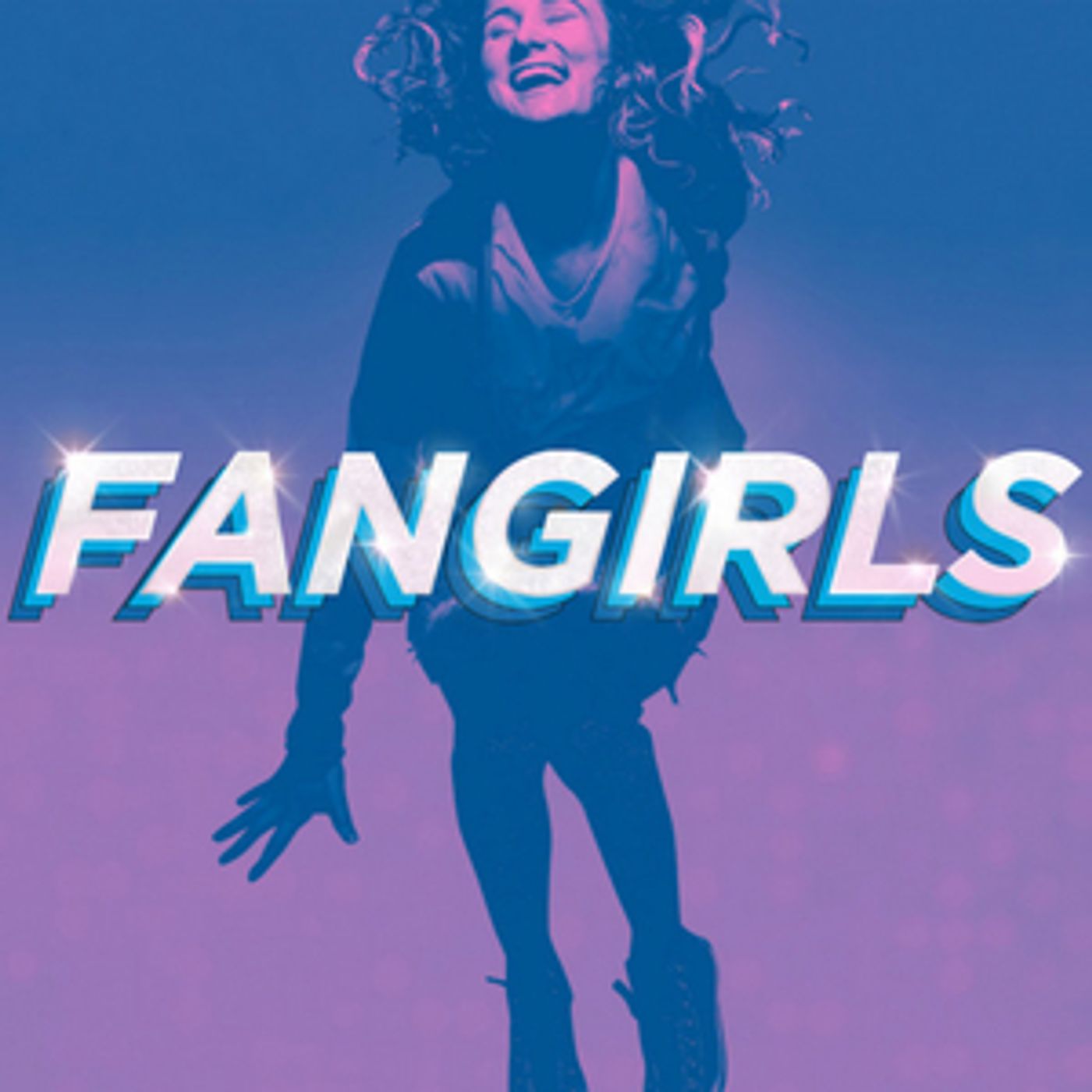BWW Album Review: FANGIRLS Gets the Satire Without the Cruelty
The 2019 Australian musical gets a cast album.

When you think of the word "fangirls," chances are, there are a lot of concepts and images that pop into your head. Chances also are, unless you've spent some time in fan culture yourself, most of those concepts and images aren't particularly flattering. That's the instinct behind Fangirls (from Ghostlight Records), Yve Blake's tongue-in-cheek satire that parodies both fan culture and the historic dismissal of the interests of young women. It's a smart, intriguing show with a catchy score that makes you laugh as much as it makes you think.
On the recording, as in the original production, Blake herself stars as Edna, the fourteen-year-old boyband fan at the center of the story. She's also the first voice we hear, as the album opens with "Let Them," a fantasy number that manages to be a pitch-perfect evocation of the 2010s pop-star sound - it's not hard to imagine it being a radio hit in this fictional (or even in the real) world. As Harry, a deliberate amalgamation of teen-dream pop idols, Blake Appelqvist is perfectly cast, getting every riff and soulful-but-not-too-soulful vibe just right.
Like the best comedies, Fangirls has a pretty simple plot and gets in most of its laughs and commentary through quirks of character. The story is, basically, this: Edna is obsessed with her favorite pop star Harry, who she is convinced is her soulmate, and she hatches an increasingly over-the-top scheme to get him to come to the same realization, with the help of her online and real-life friends and fellow fans (played by Chika Ikogwe, Kimberley Hodgson, and James Majoos, all with intriguing personalities and subplots of their own).
No part of fan culture is off-limits from Blake's skewering pen. From "Feels So True," a delightfully specific tribute to the joys of fanfiction and some all-too-familiar tropes, to "Set You Free," an increasingly dark look at the delusions of obsessive fandom, it's all right there with a level of detail that anyone who's even been adjacent to online fandom will recognize. "Justice," meanwhile, is a standout later-show track that skewers the old-school "social justice warrior" culture of online teenagers while also creating real sympathy for a demographic that gets mocked no matter what they do, simply for being who they are: teen girls with strong opinions.
The trick, though, is that it's never meant to be cruel. Blake has a knack for finding the humanity in these characters, despite their despicable behaviors. There's a fine line between "the subject of the parody" and "the butt of the joke," and Blake manages to walk it perfectly. These "fangirls" aren't just over-emotional, hormonal teenagers to be laughed at; they're fully formed human beings who are seeking connection when the real world doesn't offer any. See: "Disgusting," a devastating trio that both accurately describes Edna's actions and also feels all too familiar to any teenage girl who doesn't fit the mold somehow. See also: "Silly Little Girl," the 11-o'clock-number that sums up the powerless rage of knowing that one will be dismissed and defined by that condescending phrase. It's a fantastic exploration of how teen girls often are at the forefront of pop culture, but it's not until the "valid" demographics hop on board too that the objects of their interest are given any socio-cultural weight.
That compassion is what gives this cast recording its nuance. Too often, teen shows about outcast characters can't seem to properly balance condemning their bad behavior with understanding how they got there, but here, even as Edna's obsession escalates to the criminal, there's a certain logic beneath it all. Much like some of those "other" teen stories, however, the catalyst for the story (here, it's Harry) never gets to be more than a plot device who gets used in horrifying ways. The humor is incredibly dark and even uncomfortable in moments. It's understandable, thematically, why Harry is left as a cipher (the story is about the girls, and the whole point is that Harry himself isn't viewed by them as a "real" person, but an object of fantasy), but it also does raise some questions that are never quite followed through on.
Paired with the peppy, contemporary pop score, there's almost a Heathers vibe to it (minus the serial killing): a candy-sounding score that's actually hiding a commentary on teenage girldom, which, itself, is a meta-commentary on what we expect from candy-sounding, teenage girl stories. We can understand that what the anti-heroine protagonist does is deeply, deeply not okay, but we can simultaneously understand the need for community and the need to escape a disappointing real world - it's a strong satire that manages both the mockery and the understanding.
Click here to purchase today!
Reader Reviews
Videos

